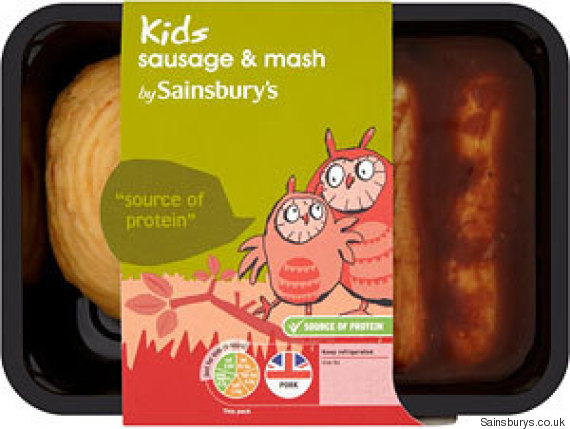From May 8th to May 12th, several large UK retailers issued a recall for over 50 potato salads, coleslaws, and ready-to-eat meals. Retailers affected included Sainsbury, Waitrose, Morrison’s and Tesco. To give you a scale of the impact of this recall, Sainsbury is UK’s second largest retailer, and Tesco is one of the world’s biggest retailers. The recall affected multiple brands of the nationwide retailers, and is found in over 43 ready-to-eat savoury pies and quick meals, and at least 6 potato salads.
The cause of the recall? Small pieces of metal were found in the potato products, and originated from a single supplier. Further investigation identified that a piece of the equipment broke during processing, resulting in metal fragments possibly being dislodged.
To give you an idea of how scary this is, here is a picture of an affected product:

Source: http://i.huffpost.com/gen/2949722/thumbs/o-SAUSAGE-AND-MASH-570.jpg?8
Look familiar? You may have grabbed something similar to this to eat on the go from the grocery store. The products affected by this recall are ready-to-eat convenient meals. People choose this product as a quick and easy meal option. I know that I eat quick meals while I multitask with homework, and I may not be paying attention to what is hidden inside of it. Plus, convenient pre-packaged potato salads could be a popular item to bring to family potlucks or work lunches…. kind of scary, isn’t it?
But they’re just small metal fragments, what’s the worst that can happen? Well, further explanation of the risks associated with the metal pieces could not be found on the UK Food Standards Agency or in the recall notice. Which is a shame, because somebody could swallow the fragment and mistakenly believe it to contribute to their daily intake of minerals. Small metal fragments can cause lacerations and internal injuries to the mouth, gastrointestinal system, and internal organs. Ouch!
An article from Food Safety Magazine stated that metal fragments are considered as “hazardous extraneous material” under Hazard Analysis Critical Control Points (or HACCP for short). We all know just how important HACCP is in the prevention of food safety hazards. But why wasn’t metal detection a critical control point during the processing of the potatoes? Not to be critical or anything, but isn’t preventative maintenance part of a certain prerequisite program of HACCP?
I know what I’m going to be more careful with now. A news article from Daily Mail (which is a popular UK online magazine) reported that product was still found on the shelves of Tesco during the weekend. The recall was announced on a Friday. Seems like there was some mis-communication.
Or do what the comments say (in the Daily Mail news article) and just make your own potato salad.
References:
Daily Mail. 2015. Still on Tesco’s Shelves… potato salads recalled in metal fragments Scare: Safety row erupts as food containing stainless steel is left for customers to buy after warnings of recall are missed. Available from http://www.dailymail.co.uk/news/article-3075221/Still-Tesco-s-shelves-potato-salads-recalled-metal-fragments-scare-Safety-row-erupts-food-containing-stainless-steel-left-customers-buy-warnings-recall-missed.html#comments. Accessed 2015 November 25.
Food Standards Agency. 2015. Potato Products Recall. Available from http://www.food.gov.uk/news-updates/news/2015/13955/potato-products-recall. Accessed 2015 November 25.
Food Safety Magazine. 2003. The Dirty Dozen: Ways to Reduce the 12 Biggest Foreign Materials Problems. Available from
http://www.foodsafetymagazine.com/magazine-archive1/aprilmay-2003/the-dirty-dozen-ways-to-reduce-the-12-biggest-foreign-materials-problems/. Accessed 2015 November 25.
